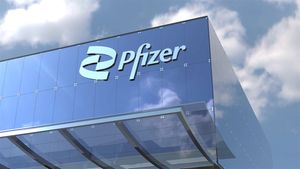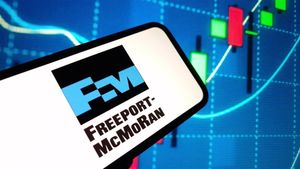LOS ANGELES, CA / ACCESS Newswire / September 26, 2025 / In the past five years, global trade has been reshaped by unprecedented levels of disruption. From the pandemic's ripple effects to evolving geopolitical tensions, from escalating regulatory demands to the rise of forced labor enforcement, businesses have been forced to reconsider how they move goods across borders. The term "supply chain resilience" has shifted from boardroom jargon to boardroom mandate.

Credit: Vincent Iacopella
For Vincent Iacopella, Executive Vice President of Growth and Strategy at Alba Wheels Up, these shifts are more than temporary hurdles. They are the beginnings of a fundamental redefinition of global trade. "Efficiency will always matter," he explains. "But in today's world, resilience, compliance, and transparency are equally vital. If you can't balance those elements, you won't be able to compete in the next era of global commerce."
The Fragility of Efficiency-Only Systems
For decades, global supply chains prioritized efficiency above all else. Just-in-time manufacturing, lowest-cost sourcing, and streamlined logistics became the gold standard. But as recent events have shown, systems built purely on efficiency lack the ability to absorb shocks.
"When COVID hit, many companies realized they had built extremely lean operations without safety nets," Iacopella notes. "Factories in Asia shut down, ships were stuck at ports, and suddenly shelves went empty. Businesses had to learn the hard way that efficiency without resilience is vulnerability."
This fragility has only been compounded by regulatory and ethical demands. Forced labor enforcement, especially under U.S. Customs and Border Protection's Uyghur Forced Labor Prevention Act (UFLPA), requires companies to prove their supply chains are free of unethical practices. "It's not enough to just move goods quickly," Iacopella emphasizes. "Companies now need visibility all the way back to raw materials. That's a seismic shift."
The New Era of Trade: Compliance Meets Innovation
As a former Co-Chair of the U.S. Customs Operations Advisory Committee (COAC), Iacopella has been at the center of conversations shaping trade modernization. He sees the convergence of regulation and technology as the defining theme of the next decade.
"We're entering an era where technology isn't just helpful, it's mandatory," he says. Tools like advanced data analytics, blockchain, and AI-driven monitoring systems are transforming how companies track shipments and validate supply chain partners. But innovation is only effective when paired with regulatory expertise.
"At Alba Wheels Up, we're investing in both technology and compliance talent. The two have to work hand-in-hand. Technology can flag risks, but it takes deep regulatory knowledge to interpret those risks and respond appropriately."
Resilience as a Strategic Advantage
Resilience, Iacopella argues, is no longer a defensive posture, it's an offensive advantage. Companies that can navigate shocks, adapt to policy shifts, and maintain transparent supply chains will not only survive but thrive.
He points to Alba's own growth strategy as evidence. Over the past several years, Alba has expanded through acquisitions and strategic partnerships, deliberately building flexibility into its model. "The goal isn't just to have more services," Iacopella explains. "It's to create optionality for our clients. When one route closes, we can open another. When regulations change, we already have a compliance framework in place."
This philosophy extends to his nonprofit advocacy as well, where Iacopella pushes for greater industry collaboration on supply chain transparency and resiliency. "One company alone can't solve systemic challenges," he says. "But together, through public-private partnerships, shared standards, and cross-industry cooperation, we can build a more sustainable model for trade."
The Human Side of Trade
What sets Iacopella apart from many of his peers is his insistence that supply chain reform is not just about economics: it's about people.
"When we talk about forced labor compliance, we're not just talking about avoiding fines or seizures," he stresses. "We're talking about real human lives. Trade should not only drive profit; it should also protect dignity."
This belief informs his personal leadership style as well. Known for mentoring younger professionals and serving on advisory boards like UCLA Anderson Forecast, Iacopella sees leadership as an opportunity to multiply impact. "I've learned that you can't do everything yourself. But you can create frameworks, mentor others, and build systems that outlast you."
A Call to Action
The challenges of global trade are not going away. In fact, they are likely to intensify as geopolitical pressures mount, regulatory demands expand, and consumer expectations rise. But for Vincent Iacopella, this is not a cause for alarm: it's a call to action.
"Trade touches every part of our lives, from the clothes we wear to the technology we use," he says. "If we want a fairer, more resilient system, we have to build it now. That means investing in transparency, embracing innovation, and never losing sight of the human impact of what we do."
By bridging compliance expertise, technological innovation, and purpose-driven leadership, Iacopella is helping chart a new course for global trade: one where resilience is not an afterthought but the foundation of sustainable growth.
Vincent Iacopella
Los Angeles, California
david@gldnpr.com
https://albawheelsup.com/
SOURCE: Vincent Iacopella
View the original press release on ACCESS Newswire






